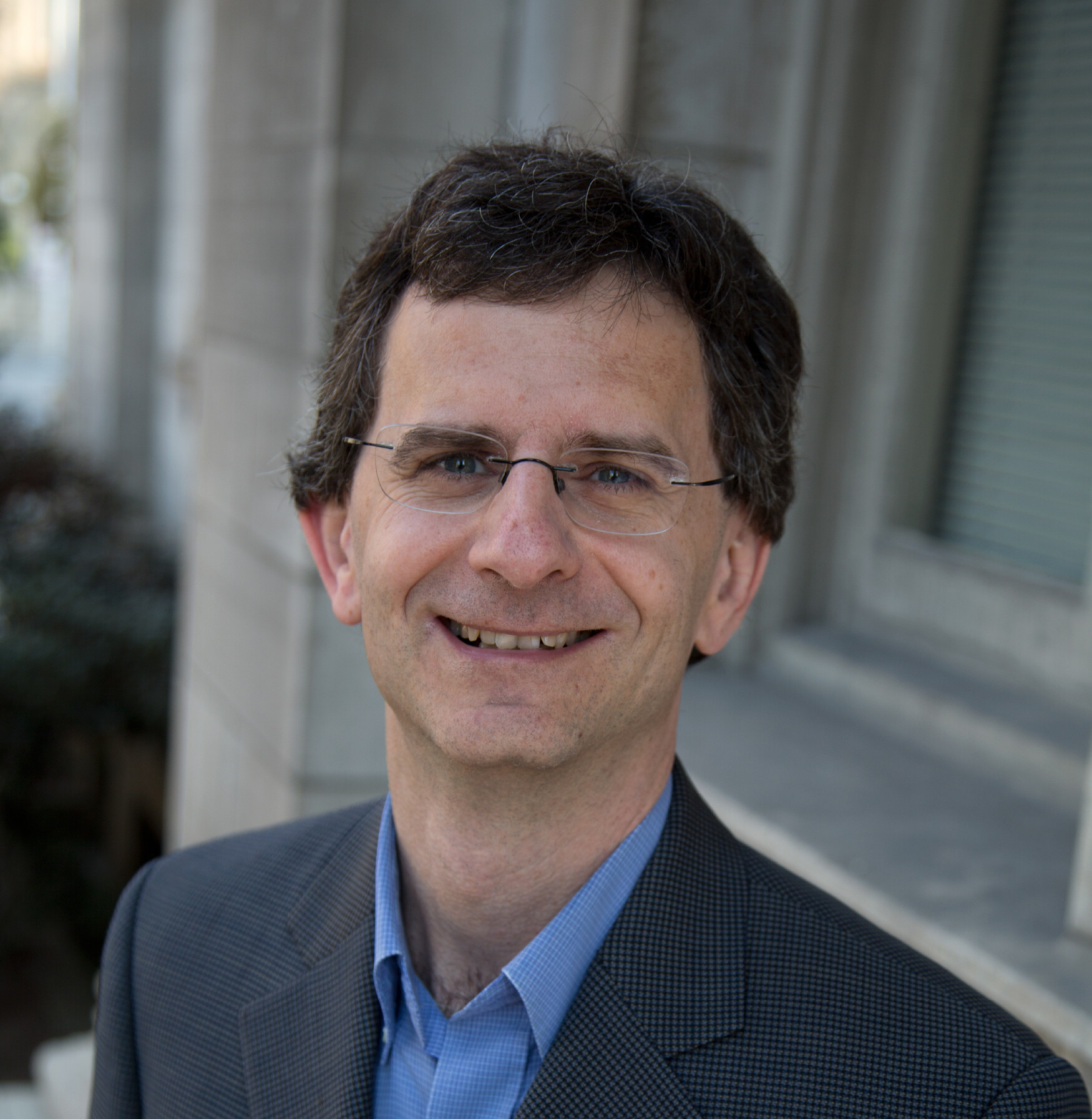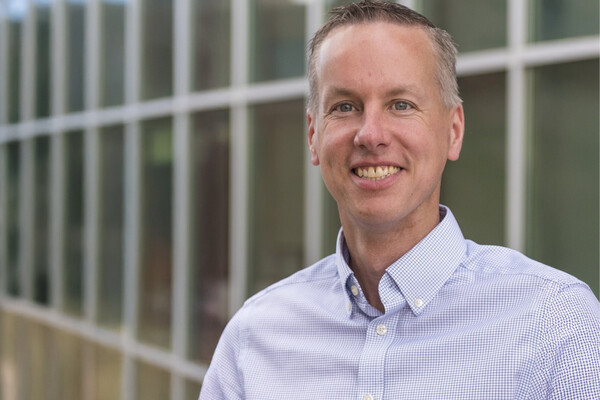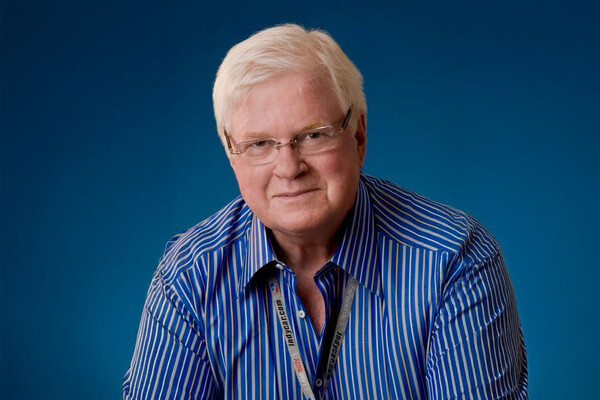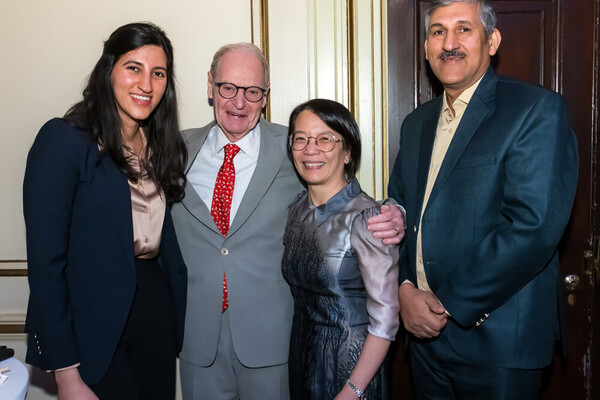Main Second Level Navigation
Breadcrumbs
- Home
- News & Events
- Recent News
- Dr. Martin Schreiber, MD’87, PGME’94, MEd'96
Dr. Martin Schreiber, MD’87, PGME’94, MEd'96

Dr. Martin Schreiber, MD’87, PGME’94, MMedEd'96 - is known for his work as a clinician, administrator, educator, and scholar. Recognized widely for his teaching style, Martin has won over 40 teaching awards including most recently the 3M National Teaching Fellowship in February 2016, Canada's most prestigious University-level teaching award, highlighting excellence in educational leadership and teaching.
One of the nicest things is to have former students see me in the elevator at St. Mike’s and say, 'Hey Dr. Schreiber! I still remember what you taught me.' It's often about a relatively commonplace topic like intravenous fluids, but to have had an impact on students that is remembered several years later is to me a very satisfying accomplishment.
What first attracted you to studying medicine at U of T?
I was always interested in becoming a doctor. My parents were health care professionals, my mom was a dentist and my dad was a physician. I also did well enough in school in the sciences so it seemed like an obvious career path. So there I went in 1983, at age 19, to medical school.
What have you been up to since graduation? Walk us through your career.
After four years of medical school, I went into a four-year internal medicine residency. This included a chief medical residency which is where I really became interested in teaching. After that, I did a clinical year of nephrology training and then went off to the University of Dundee in Scotland to do course work towards a Master’s degree in medical education. Back then there were only a few places worldwide offering advanced training in medical education, and the idea of going to Scotland appealed to my wife and me, so we took the plunge. The University of Dundee has a Centre for Medical Education that was somewhat special. It was a great opportunity to study abroad.
I then came back to Toronto and did one more year of nephrology training in a research lab. This was a great opportunity to further develop my teaching and writing skills. I took on my first faculty position at Mount Sinai in internal medicine, cross appointed to nephrology at University Health Network. I finished my Dundee master’s thesis in my first two years on faculty.
I moved to St. Michael’s Hospital in 2000 to focus on clinical nephrology. As the years have gone by I was the undergraduate director for internal medicine for three years, and in 2005 I became involved in higher levels of administration including leading the medical school’s accreditation, a process which happens every eight years. Our last accreditation was in 2012 and we did well but the preparation for that included two years and the follow up has created a fair bit of activity as well. We go through every aspect of the school, from admissions to student life, to faculty issues, to the curriculum itself to graduates and everything in between.
What was your Master of Education thesis?
It was comparing how well clinical clerks in internal medicine performed in the traditional curriculum versus the new curriculum that had been introduced back in 1992, in their knowledge of internal medicine as revealed by their answers on multiple-choice questions. I learned a great deal about writing multiple choice questions, interpreting results, the statistics, and potential contributors to differences in scores. I learned a lot about medical education assessment and how doctors think.
What about your work excites you the most?
I think what I like most is the great variety of tasks that contribute to my job as a whole. I still love seeing patients, especially with a student or resident. Patient care remains a very grounding and humbling experience. At the same time, I love teaching in the classroom setting, whether in a lecture hall or to a small group. Even if it is a session that I have taught many, many times, students always come up with new questions. And, I greatly value the opportunities I have had to organize courses and contribute to their evaluation in the various curriculum roles. So it is the blend of all of this that keeps me going.
Regarding the new Foundations Curriculum, were there any aspects of the old curriculum that you wanted to keep?
The main aspect that I wanted to keep is the people. We have hundreds and hundreds of teachers who are engaged in classroom teaching giving lectures, doing bedside teaching and small group teaching about cases. They are clearly committed to helping junior medical students learn. We have to preserve those existing relationships
The other aspect of the existing curriculum to be preserved is its comprehensive approach to the breadth of medicine. We have developed extensive learning objectives, learning materials and assessment instruments, and these have served as a guide for the revisions in the Foundations Curriculum. In other words, we did not start developing the new program from scratch.
In particular, many of the existing resources will be made available to students, with careful guidance (some people call it “curating”) to students as to how best to use these resources. There are endless amounts of resources and we have selected many that we think are helpful for students. Students still have autonomy to read that article and do these exercises, but we’ll help them navigate all those resources. We will give them very clear learning goals, we’ll give students questions that will give them some guidance, we’ll watch them interview patients, and we’ll meet with students regularly to review their progress. That’s what the new curriculum is all about.
What is your next big challenge?
At the moment, I am busy in my role as Curriculum Director but there is an interim accreditation review that I am leading. This is an internal process that all medical schools take part in. It’s an interesting example of continuous quality improvement; looking at all the accreditation standards so that we are well poised to tackle the next accreditation in 2020.
Do you have any Words of Wisdom for current U of T students?
The landscape is somewhat different than it used to be - the health care system has become more complicated and the job opportunities have become trickier to navigate. But medicine in my opinion remains a wonderful profession.
I think that medical students need to get as well trained as possible, and be open to different options along the way and new opportunities will present themselves. For instance, when I started medical school, I didn’t set out to get a Master’s Degree in Education. I would have said I am becoming a doctor, not a teacher! So I think having an open mind about different possibilities during the training journey is critical to future success. Students need to consider many variables: are they interested in primary care versus some kind of other specialty; community or academic practice; rural or urban settings. If academic, are they interested in teaching or research or both?
It is important to realize that there is no one perfect career waiting for any of us; there are many ways for us to end up with a highly productive and satisfying career.
News


